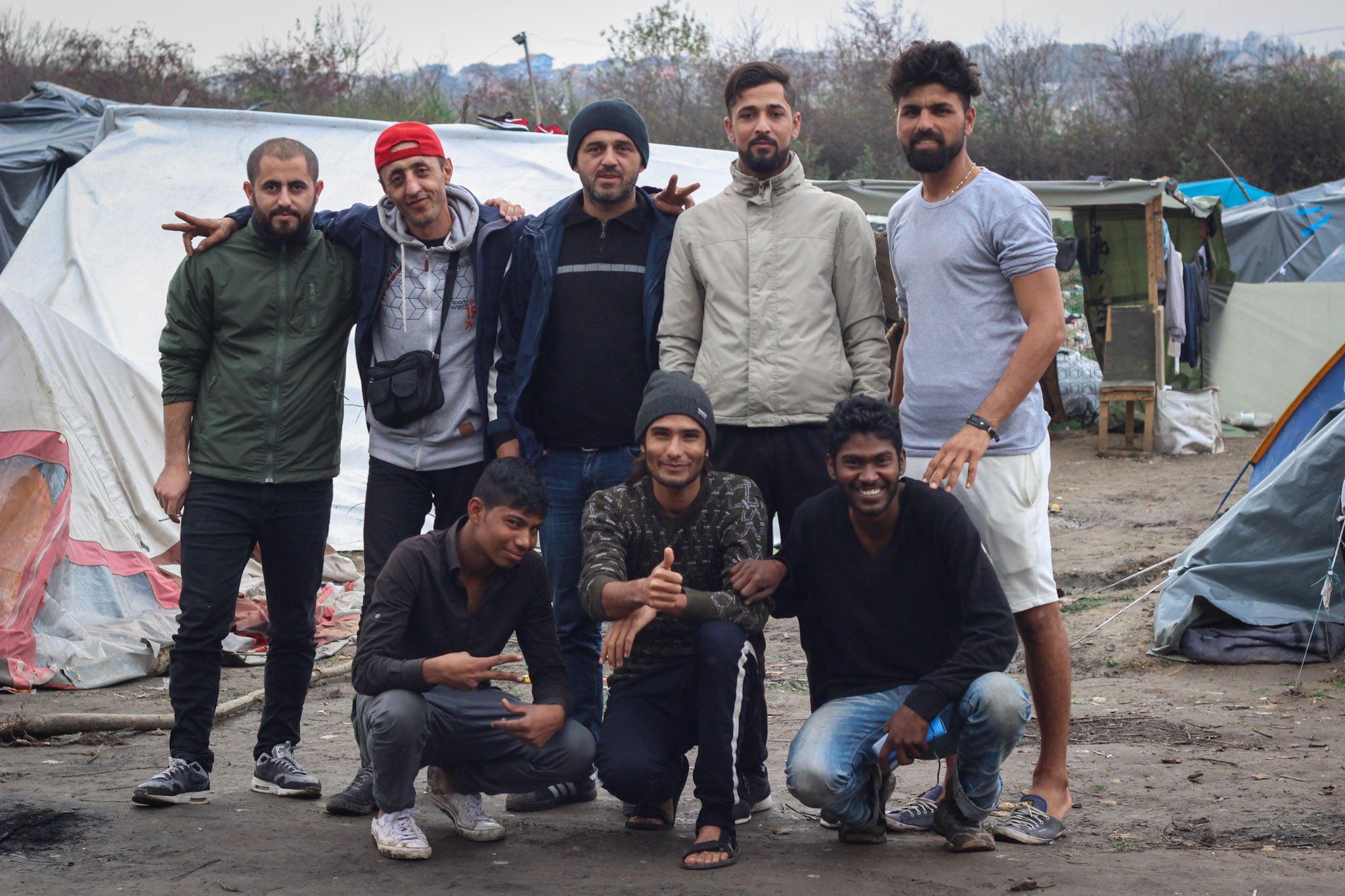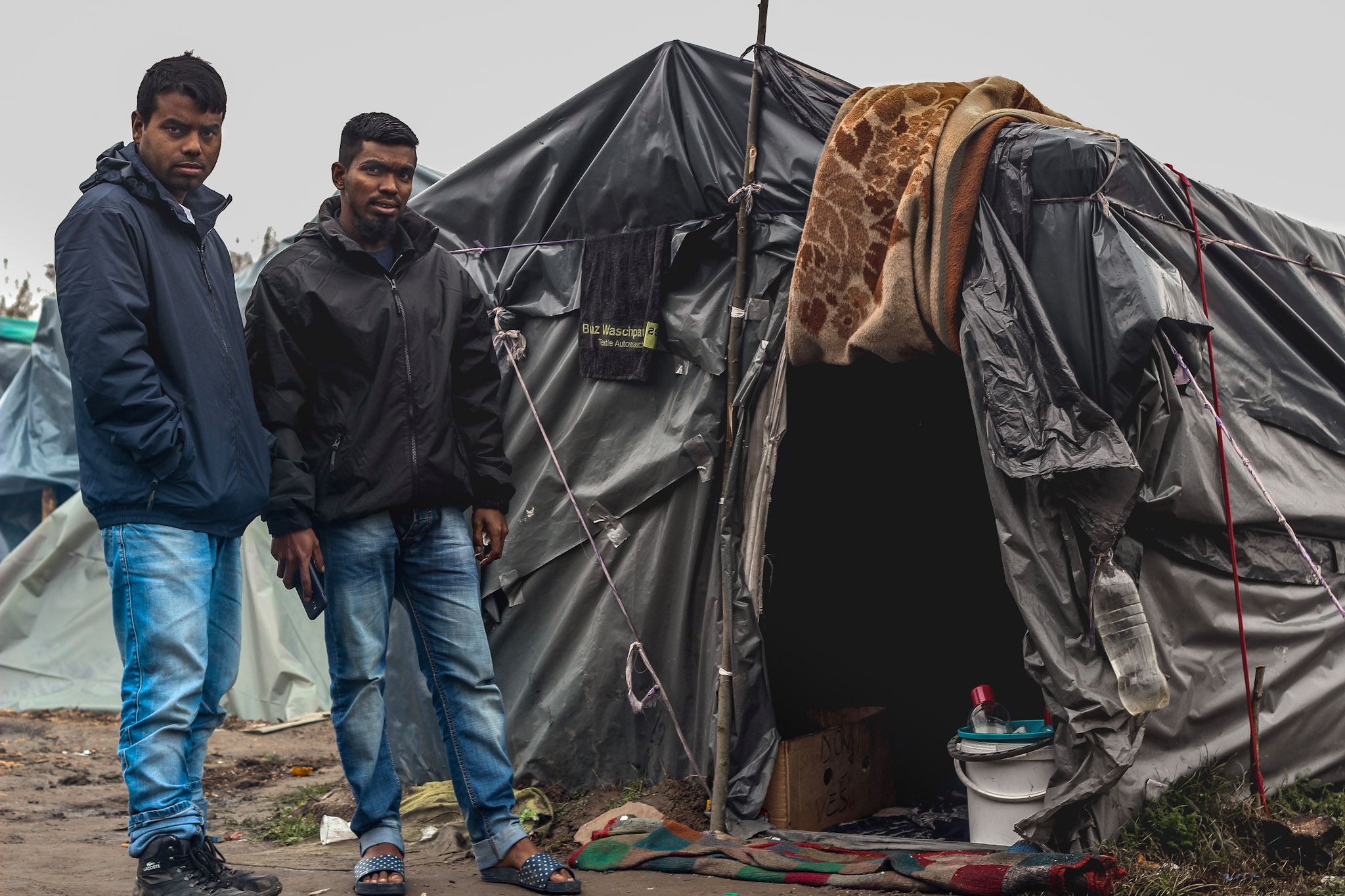“In 2012, I was a student at Central Michigan University. I met a Saudi Arabian student and he invited me to play soccer with some other guys from the university.
I knew nothing about the Middle East or Islam. I only knew what the news was saying.
Eventually, they invited me over for dinner. I walked into their apartment and the first thing I noticed was this overwhelming sense of friendliness and fellowship. They were the most genuine and kind people I could have ever found. It just took me deciding whether or not to walk through their door.
They showed me that Middle Eastern culture is very hospitable and warm. I learned about Islam and how our news stories differ from what they see and the depiction of people suffering. That was a big moment for me. I realized politics is more than the news telling you what’s going on. It’s also telling you how to think about what’s going on.
After the Syrian crisis began, and it was dragging on, I was learning more about the Syrian people and I thought, ‘is anything being done about this?’ I felt a responsibility to help.
I found a couple grassroots organizations in the Balkans and watched them for a while. In May of 2018, I bought a one-way ticket to Belgrade.
I did some volunteer work just outside of the city center for three months. I was the activities coordinator. The first thing I noticed was that people are bored and waiting, sometimes for years. There wasn’t even a book they could read in their own language—there was nothing. Bringing activities into the camp was very important, on levels that we probably don’t understand. We would play games and sports, we made bracelets and just socialized with them, got to know them.
After three months in Belgrade, I was looking for new situations. The director told me about a shelter home in Bosnia which offered a different structure for refugee aid. You’re there from morning until night. You get to know them personally and they’re comfortable coming to you with their needs.
In Belgrade that was more difficult. It was an all-male camp and the cultural expectations of male and female relationships made those interactions more difficult. The house offered a close working environment, which is what I really wanted.
In Bosnia, I was helping with the school. None of the kids were able to go to Bosnian schools because of their refugee status. They weren’t eligible to be educated, we filled that role. We created classes and a structured environment for them, it brought an element of normalcy back. I’ve never seen kids so excited for school.
It’s been two-and-a-half years, and I still don’t have words for how profound that was and how it changed me. The relationships built through this experience are otherworldly.
Once you walked into a camp, all you were was human.
Once you walked into a camp, all you were was human.
When I went to Bosnia, I came back with a photojournalism project. I didn’t go with the intention of doing it. I just thought, ‘people have to know about this.’
The organizations I volunteered for were ethically conscious, no photos were allowed in the camp. If you’re a migrant and you’re identified as being in one country, it's possible another could deport you back to the camps there. None of the photographs in my exhibition are affiliated with the organizations I was working with.
After I was done with my volunteer work and knew I was heading back to the US soon, I separated from the organizations. I decided I needed to do photography work. I was connected enough to the different refugee camps between Bosnia and Serbia and made an itinerary of a few squats I wanted to visit. Squats are clusters of people who have started colonizing fields or abandoned buildings because there’s no room for them anywhere else. It’s just people living there with no oversight.
A majority of the photos in the exhibition were taken at a squat in northern Bosnia. I was visiting someone there and he took me into the camp and said I shouldn’t be there alone. A Syrian guy saw me and knew I was out of place, he offered me some tea.
I was immediately welcomed by him, he walked with me. He took me around the settlement and introduced me to a couple people that would look out for me. I was a single girl in a squat of about 600 men from all over. I knew I would be fine; I know these people; they want peace.
My favorite photo is of an Afghan guy. I took it when I saw him. I was sitting near a fountain in Belgrade, and across the street was a Serbian homeless man having an epileptic seizure. Other locals were stepping around him and over him. A couple of the homeless man’s friends took care of him and laid him down. The Afghan man was also watching this. He got up, pulled a napkin out and wiped the blood off of the homeless man’s face. He then gave the man an apple. He did it without saying a word.
He came back and looked me in the eye and said quietly, ‘this is humanity.’
The premiere of my exhibition was at Dawn of a New Day Coffee House. Once I did that, it advertised itself. Saginaw Valley State University then picked it up and wanted it shown for the Traveling Tap which is hosted by Oracle Brewing Company. From there it went to Creative 360 in Midland. It was such an honor.
These people are making hard decisions for themselves and their families. They’re escaping to the West because they cannot be where they’re from. That’s the story that needs to be shared.”
- Meredith Bieber










